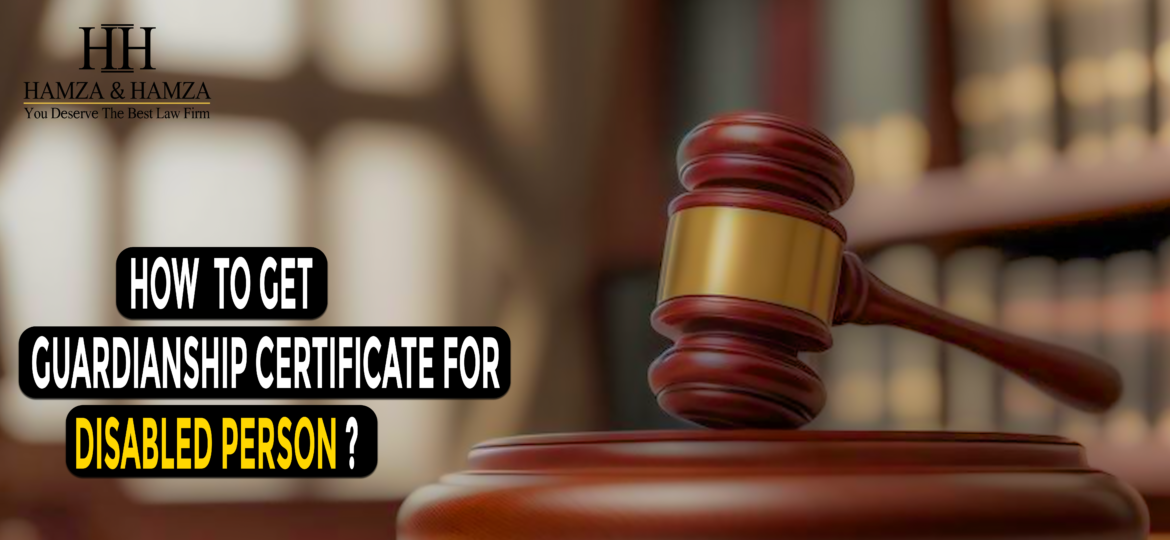
How to Apply for Guardianship of a Disabled Person in Pakistan – A Legal Guide
Families with disabled individuals often find themselves navigating a complex legal system to ensure their loved ones receive the care and protection they need. In Pakistan, the law provides a formal process through which a family member, caregiver, or institution can be appointed as the legal guardian of a disabled person, particularly when the individual is unable to manage their personal, financial, or medical affairs due to physical or mental incapacity.
This article outlines the step-by-step procedure for applying for guardianship of a disabled person in Pakistan, especially in Punjab, Pakistan under the Guardians and Wards Act, 1890 and Mental Health Ordinance, 2001.
Who Can Apply for Guardianship of Disabled Person?
Any of the following person may apply for legal guardianship of a disabled person:
- A parent or close blood relative
- A sibling
- A caregiver or individual who has been responsible for the disabled person’s wellbeing
- An NGO or charitable organization (in rare cases)
- Any person or institution acting in the best interest of the disabled person
Legal Framework
The process is governed by the Mental Health Ordinance, 2001, which provides a mechanism for the courts to appoint a suitable guardian in the best interests of the disabled person).
Step-by-Step Process to Apply for Guardianship of Disable Person
Step 1: Obtain Medical & Disability Certificates
You must first secure credible proof of the individual’s disability. This includes:
- Medical reports from a recognized hospital or mental health professional
- Disability certificate from a government authority
- National Identity Card, B-Form, Birth Certificate and/or Family Registration Certificate of the disabled person
Step 2: Hire a Lawyer
Seek assistance from a qualified legal expert on family or guardianship law, who will file a guardianship petition on your behalf in the competent court.
Step 3: Draft and File the Petition
The petition should include:
- Details of the disabled person
- Your relationship with the disabled person
- List of nearest relatives of the patient.
- Reasons for seeking guardianship for disabled person
- Supporting medical and legal documents. The Matter in filed in Special Court established under the provisions of the Mental Health Ordinance, 2001.
- Affidavits of at least two relatives not related by blood with the patient, preferably the neighbor or any independent person, specifying their connection with the patient
- Details of the patient’s movable and immovable assets/properties
- Certificate from concerned Union Council where the patient is residing describing the authenticity of his location
- Permission from the Advocate General allowing permission to relative filing for Guardianship
Step 4: Notice to Respondents
The court will issue notice to all relevant family members or interested parties (if any) to seek their consent or objections.
Step 5: Court Hearings
You (the petitioner) must appear before the court and present evidence. If there is no objection and the court is satisfied, the case can proceed quickly.
Step 6: Court Order for Guardianship
If the court finds that the appointment is in the best interest of the disabled person, it will issue an order appointing you as the legal guardian.
Step 7: Issuance of Guardianship Certificate
A formal Guardianship Certificate is issued by the court, which can be used to:
- Open a bank account for the disabled person
- Authorize medical procedures
- Handle legal and financial matters on their behalf
- Administering properties of the Disable person
Frequently Asked Questions
Q: How long does the process take?
Usually between 3 to 4 months, depending on court workload, any objections raised and the facts involved.
Q: Can I apply from overseas?
Yes, if you’re a Pakistani living abroad, you can file the petition through a Power of Attorney granted to someone in Pakistan.
Q: Can guardianship be revoked?
Yes, the court may revoke guardianship, if abuse, neglect, or fraud is proven but this exercise is done by the court upon the written complain of some party who has relevance with disabled person.
Q: Can a person other than parent of the disabled person be appointed his/her guardian?
Yes, if parents are alive they should consent and if deceased, there death certificate be produced to satisfy the court. However, relevance with the disabled person is important.
Q: Can property of the Disable person be sold without court’s permission?
No, property of the disable person cannot be sold without courts permission. Any such transaction is not possible at the first place without court’s order but if for any reason such transaction is proceeded, same will be judicially reviewable by the courts of Pakistan and will be turned null and void.
Conclusion
Appointing a guardian for a disabled person is a serious and responsible legal step that protects the individual’s rights, health, and welfare. The process can be smooth and efficient with the right legal guidance and documents. If you or someone you know needs help with this, consult our expert family lawyers at Hamza & Hamza Law Associates.

